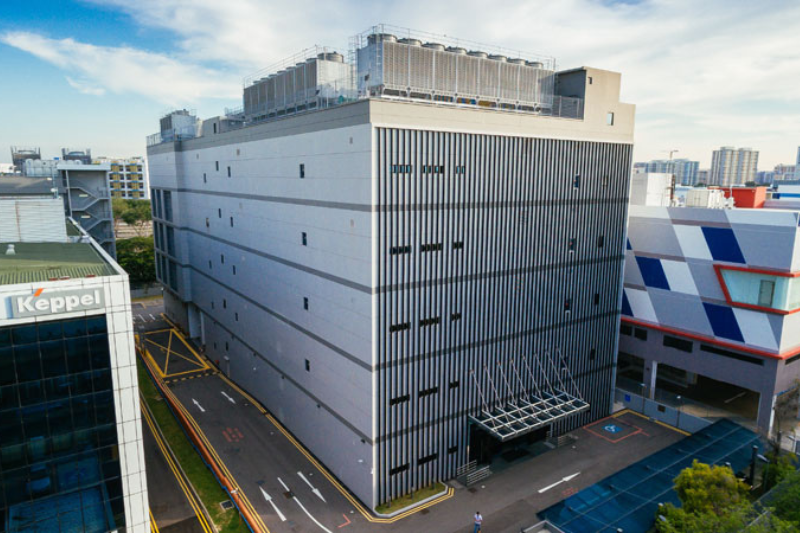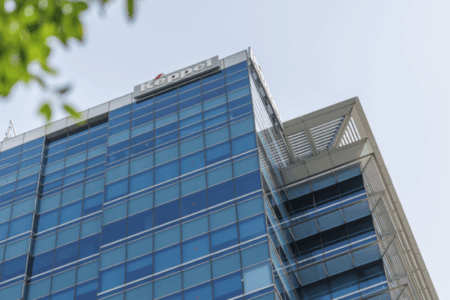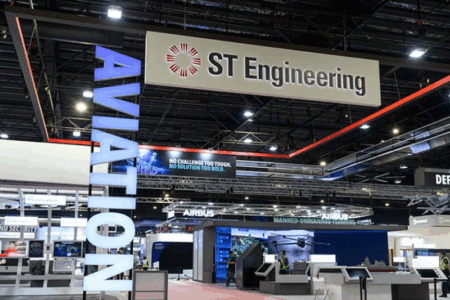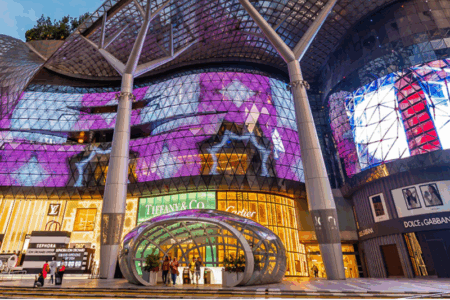Singapore is well-known for being an Asian REIT hub.
Singapore REITs, or S-REITs, have faced multiple headwinds, including soaring inflation and elevated interest rates that have crimped their distributions.
Even as inflation eased, S-REITs faced a new threat – that of US President Donald Trump’s recently announced raft of reciprocal tariffs.
These tariffs threaten to upend supply chains and re-ignite inflation as businesses are forced to deal with higher costs.
Meanwhile, interest rates are poised to remain “higher for longer” as the US Federal Reserve adopts a wait-and-see approach by assessing incoming economic data.
Income investors may wonder if buying S-REITs still makes sense in such an environment.
REITs are dividend machines
The great thing about REITs is that they function as dividend machines, regularly churning out distributions either quarterly or half-yearly.
Why is that so?
Because REITs are required by law to pay out at least 90% of their profits as distributions to enjoy tax benefits.
In doing so, REITs become something similar to a bond in that they pay out a regular income to the unitholder.
Of course, being real estate instruments, REITs rely on rental income from their tenants and are also subject to property sector risks.
There have been cases where REITs have halted their distributions because they faced problems with tenant occupancy and also saw the value of their properties plummet.
Hence, as a REIT investor, it pays to be discerning when it comes to selecting the right REITs.
The roses among the thorns
Even through the recent headwinds, several REITs bucked the trend by reporting higher distribution per unit (DPU).
A great example is Keppel DC REIT (SGX: AJBU).
The data centre REIT saw its DPU climb 14.2% year on year for the first quarter of 2025 to S$0.02503.
Another two examples are Mapletree Industrial Trust (SGX: ME8U) and AIMS APAC REIT (SGX: O5RU).
These two industrial REITs reported a year-on-year increase of 1% and 2.6%, respectively, for their fiscal 2025 DPUs.
Then there’s also retail and commercial REIT CapitaLand Integrated Commercial Trust (SGX: C38U), or CICT.
CICT reported that its DPU improved by 1.2% year on year to S$0.1088.
The natural question you may ask is – how do these REITs achieve DPU growth despite these headwinds?
The importance of a strong sponsor
One important factor in selecting resilient REITs is to identify REITs that possess a reputable sponsor.
Such sponsors not only provide financial support for the REIT during tough times, but also help to lower its cost of borrowing while providing a pipeline of suitable assets for acquisition.
CICT has a strong sponsor in blue-chip real estate manager CapitaLand Investment Limited (SGX: 9CI) while Mapletree Industrial Trust’s sponsor is investment firm Mapletree Investments Pte Ltd.
Keppel DC REIT boasts a strong sponsor in blue-chip asset manager Keppel Ltd (SGX: BN4).
Acquisitions, AEIs and capital recycling
Apart from having a good sponsor, these REITs have also been actively acquiring new properties and engaging in capital recycling activities.
CICT purchased a 50% stake in ION Orchard Mall last September for S$1.85 billion and this transaction is expected to be yield-accretive.
Mapletree Industrial Trust carried out its first acquisition in two years back in May 2023 with the purchase of a 98.47% interest in an Osaka data centre.
Then, in September 2024, the industrial REIT bought a freehold mixed-use property in Tokyo, Japan, for around S$133.6 million.
Both transactions are expected to be yield-accretive for the REIT.
As for capital recycling, Mapletree Industrial REIT recently sold Georgia Data Centre for US$11.8 million, an 18.6% premium to its independent valuation.
Last February, the REIT divested Tanglin Halt Cluster for S$50.6 million, 8.4% above its book value.
CICT announced the divestment of 21 Collyer Quay for S$688 million at an exit yield of 3.5%.
These divestments help to rejuvenate the REITs’ portfolios and ensure their properties stay relevant and can command healthy occupancy and rentals.
Then there are asset enhancement initiatives (AEIs) that can help the REIT to grow its rental income organically through refurbishments or redevelopments.
CICT is completing its IMM Building and Gallileo AEIs this year and is slated to commence planning for the AEI for Tampines Mall in the fourth quarter of this year.
Get Smart: Tough times don’t last; tough REITs do
Remember that tough times should eventually give way to better days.
Interest rates may not stay high for very long if the US economy shows signs of slowing down.
Meanwhile, you can search for REITs that can withstand these challenges and will still keep dishing out attractive distributions.
Investors may still feel pessimistic about the S-REIT sector, but through careful selection and proper due diligence, you can find REITs that can withstand these headwinds.
Boost your portfolio’s returns with 5 SGX stocks that promise both stability and steady growth. We bring you the names of these rock-solid stocks, including why they could drive massive dividends over the next few years. If you’re looking to invest for retirement, this guide is a must-read. Click HERE to download now.
Follow us on Facebook and Telegram for the latest investing news and analyses!
Disclosure: Royston Yang owns shares of Keppel DC REIT and Mapletree Industrial Trust.





